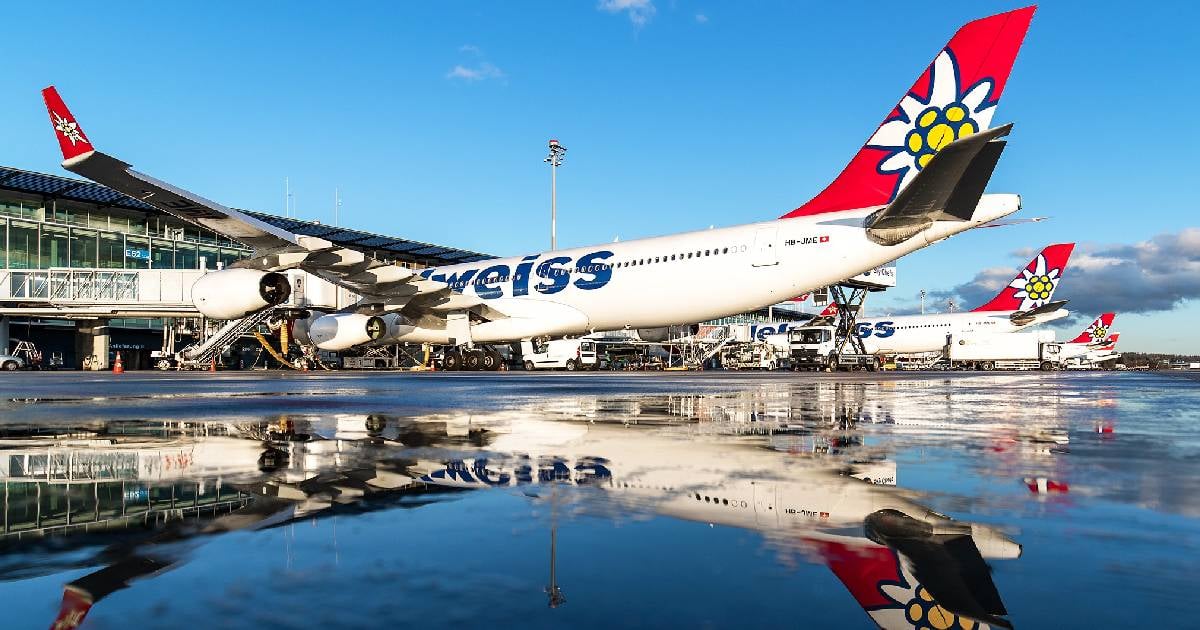
Related videos:
The Swiss airline Edelweiss Air has announced the cancellation of its flights to Cuba starting in March, which represents another blow to the island's tourism sector, already facing a significant reduction in the arrival of international visitors.
This decision, which will take effect after February 27 when the last flight between the two cities occurs, primarily affects the route between Zurich and Havana, a connection that Edelweiss operated with its largest aircraft, the Airbus A340.
According to the airline, the measure is in response to the difficulty of ensuring stable and reliable long-distance operations at Havana airport in the long term.
"After careful consideration, Edelweiss has decided to suspend flights to Havana starting in March 2025," German media report, citing the airline.
The decision is based not only on the difficult conditions at José Martí Airport in Havana but also on the decrease in demand.
According to this site, an on-site inspection conducted by Edelweiss showed that it was difficult to ensure stable and reliable long-distance operations over the long term.
Edelweiss, which offers seating for 300 or, depending on the aircraft, even 314 passengers, noted that it will continue to fly regularly and non-stop from Kloten to Havana and back to Zurich every Thursday.
"Edelweiss regrets the inconveniences and thanks you for your understanding," it says at the end of the message.
With this departure, the Swiss airline keeps the door open for alternatives that include flights with Air Europa or Iberia, both of which have a layover in Madrid.
According to reports, the decision will affect 478 people who booked the Zurich – Havana route in March or the following months, and 679 who booked the Havana – Zurich route.
In 2024, Cuba faced several cancellations from various international airlines, leading to a significant decrease in the island's air connectivity.
Among the companies that recently announced they would cease operations is the German airline Cóndor, eliminating the only direct connection to Germany.
According to information published by Aviacionline, the decision is due to a decrease in passenger demand and growing issues with the local infrastructure in Cuba, including power outages and shortages.
These factors have negatively impacted the travelers' experience and the operations of Cóndor.
On the other hand, a recent preliminary report published by the National Office of Statistics and Information (ONEI) of Cuba revealed striking figures about the performance of the tourism sector during 2024, consolidating a discouraging outlook for one of the country's main sources of income.
According to the disclosed data, the number of international visitors was significantly lower than projected, showing a decline compared to previous years.
Until November 2024, the country received 2,719,259 travelers, representing 95.2% of the total recorded in the same period of 2022, which is 137,047 fewer travelers.
Of these, international visitors totaled 2,005,390, marking a 92.1% drop compared to the previous year, which is equivalent to 172,451 fewer visitors.
Frequently Asked Questions about Edelweiss Air Flight Cancellations to Cuba and the Tourism Crisis on the Island
Why did Edelweiss Air cancel its flights to Cuba?
Edelweiss Air has canceled its flights to Cuba due to difficulties in ensuring stable and reliable long-distance operations at Havana airport, as well as a decline in passenger demand. These conditions made the operation of the Zurich-Havana route unsustainable beginning in March 2025.
How does the cancellation of Edelweiss Air flights affect tourism in Cuba?
The cancellation of flights by Edelweiss Air represents another blow to tourism in Cuba, further reducing the island's air connectivity. This decision adds to the exit of other international airlines, which could decrease the arrival of foreign tourists, negatively impacting the country's economy and its tourism sector.
What other airlines have recently canceled flights to Cuba?
Airlines such as Cóndor, TUI, and Avianca have canceled or reduced their flights to Cuba in recent years, responding to low demand and operational issues on the island. These decisions reflect a decline in Cuba's air connectivity, which negatively impacts the country's tourism sector.
What are the causes of the tourist crisis in Cuba?
The tourist crisis in Cuba is due to infrastructure problems, such as power outages and fuel shortages, coupled with competition from other Caribbean destinations that offer better services. Moreover, poor management and a lack of economic diversification have exacerbated the situation, leading to a decrease in the arrival of international tourists.
Filed under: